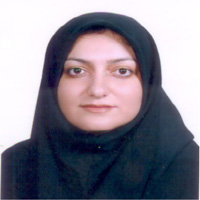Comparing the discourse of patients with Alzheimer (at the early and middle stages of disease) and Persian-speaking normal individuals: A linguistic and pragmatic approach
Author(s):
Article Type:
Research/Original Article (دارای رتبه معتبر)
Abstract:
Neurolinguistics is an interdisciplinary field that explores the relationship between language and various aspects of cognitive function. It investigates the inner workings of the mind within the framework of linguistics (Ahlsen, 2006). A recurring question in this field is whether an individual's linguistic and pragmatic abilities can independently enhance or hinder communication for those with neurological disorders. Some individuals with aphasia can compensate for their linguistic deficits by relying on their pragmatic skills. However, it has been observed that individuals with dementia, due to impaired pragmatic abilities, struggle to maintain their communication skills (Ulatowska & Chapman, 1995). Despite numerous studies, the exact nature of the pragmatic breakdown in dementia remains poorly understood and is a subject of ongoing debate (Garcia & Joanette, 1994).Alzheimer's disease is the most common form of dementia. According to the International Classification of Diseases, Alzheimer's is characterized as a gradual decline in memory and cognitive function that impairs daily activities (Kilmova et al., 2015). This disease affects various aspects of cognitive function, including memory, reasoning, thinking, language, and judgment, gradually causing linguistic and cognitive problems by shrinking the cerebral cortex (Milton, 2008). Linguistic deficits are often among the first cognitive signs of Alzheimer's disease. These deficits manifest as difficulties in understanding word meanings, finding appropriate words, naming objects, and comprehending words due to a decline in the social aspects of language. Consequently, individuals with Alzheimer's may struggle in social communication, speaking excessively, loudly, repeating themselves, or losing track of the conversation's topic.Assessing and identifying the language problems of individuals with Alzheimer's requires a comprehensive understanding of how the disease impacts language and the patients' cognitive perceptions. Recognizing the language abilities and disabilities of Alzheimer's patients at different stages of the disease can inform the provision of rehabilitation services for this segment of society. This research seeks to provide scientific insights into the linguistic performance of Persian-speaking Alzheimer's patients. The study aims to compare the discourse of Persian-speaking normal individuals and patients with Alzheimer's (at early and middle stages of the disease) at both linguistic and pragmatic levels. The study aims to address the following questions:Is there a significant difference in the discourse of Persian-speaking normal individuals and patients with Alzheimer's (at the early and middle stages of the disease) at linguistic levels?Is there a significant difference in the discourse of Persian-speaking normal individuals and patients with Alzheimer's (at the early and middle stages of the disease) at pragmatic levels?
Keywords:
Language:
Persian
Published:
Language research, Volume:15 Issue: 48, 2023
Pages:
253 to 287
https://magiran.com/p2661804
دانلود و مطالعه متن این مقاله با یکی از روشهای زیر امکان پذیر است:
اشتراک شخصی
با عضویت و پرداخت آنلاین حق اشتراک یکساله به مبلغ 1,390,000ريال میتوانید 70 عنوان مطلب دانلود کنید!
اشتراک سازمانی
به کتابخانه دانشگاه یا محل کار خود پیشنهاد کنید تا اشتراک سازمانی این پایگاه را برای دسترسی نامحدود همه کاربران به متن مطالب تهیه نمایند!
توجه!
- حق عضویت دریافتی صرف حمایت از نشریات عضو و نگهداری، تکمیل و توسعه مگیران میشود.
- پرداخت حق اشتراک و دانلود مقالات اجازه بازنشر آن در سایر رسانههای چاپی و دیجیتال را به کاربر نمیدهد.
In order to view content subscription is required
Personal subscription
Subscribe magiran.com for 70 € euros via PayPal and download 70 articles during a year.
Organization subscription
Please contact us to subscribe your university or library for unlimited access!



